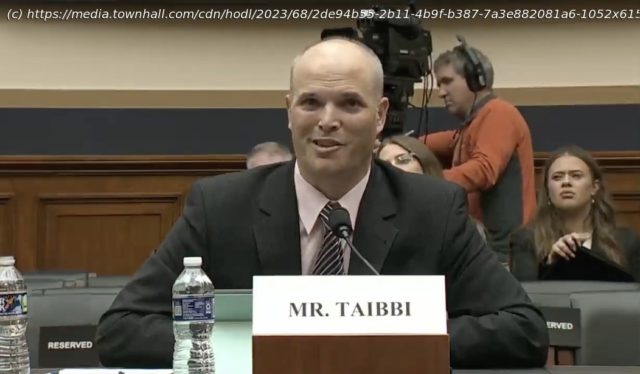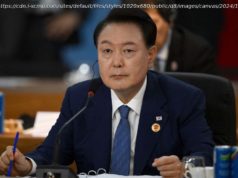Array
Last March, Matt Taibbi testified before congress about the investigation that was widely known as the Twitter Files. Here’s a bit of what he had to say.
The original promise of the Internet was that it might democratize the exchange of information globally. A free internet would overwhelm all attempts to control information flow, its very existence a threat to anti-democratic forms of government everywhere.
What we found in the Files was a sweeping effort to reverse that promise, and use machine learning and other tools to turn the internet into an instrument of censorship and social control. Unfortunately, our own government appears to be playing a lead role…
We learned Twitter, Facebook, Google, and other companies developed a formal system for taking in moderation “requests” from every corner of government: the FBI, DHS, HHS, DOD, the Global Engagement Center at State, even the CIA. For every government agency scanning Twitter, there were perhaps 20 quasi-private entities doing the same, including Stanford’s Election Integrity Project, Newsguard, the Global Disinformation Index, and others, many taxpayer-funded.
A focus of this fast-growing network is making lists of people whose opinions, beliefs, associations, or sympathies are deemed “misinformation,” “disinformation,” or “malinformation.” The latter term is just a euphemism for “true but inconvenient.”
On July 4th last year, a federal judge in Louisiana granted a preliminary injunctions forbidding the government from many interactions with social media companies. The judge wrote that the case appeared to involve a “massive attack against free speech.”
In the ruling, Judge Terry A. Doughty of the U.S. District Court for the Western District of Louisiana said that parts of the government, including the Department of Health and Human Services and the Federal Bureau of Investigation, could not talk to social media companies for “the purpose of urging, encouraging, pressuring, or inducing in any manner the removal, deletion, suppression, or reduction of content containing protected free speech.”
In granting a preliminary injunction, Judge Doughty said that the agencies could not flag specific posts to the social media platforms or request reports about their efforts to take down content. The ruling said that the government could still notify the platforms about posts detailing crimes, national security threats or foreign attempts to influence elections.
“If the allegations made by plaintiffs are true, the present case arguably involves the most massive attack against free speech in United States’ history,” the judge said. “The plaintiffs are likely to succeed on the merits in establishing that the government has used its power to silence the opposition.”
The White House pushback on the Twitter Files and this case was that the government hadn’t ordered anyone to do anything it had just held collegial meetings with representatives of the social media companies and occasionally sent over lists of problematic accounts.
Home
United States
USA — Criminal Supreme Court Hears Social Media Censorship Case (The Twitter Files Goes to...






